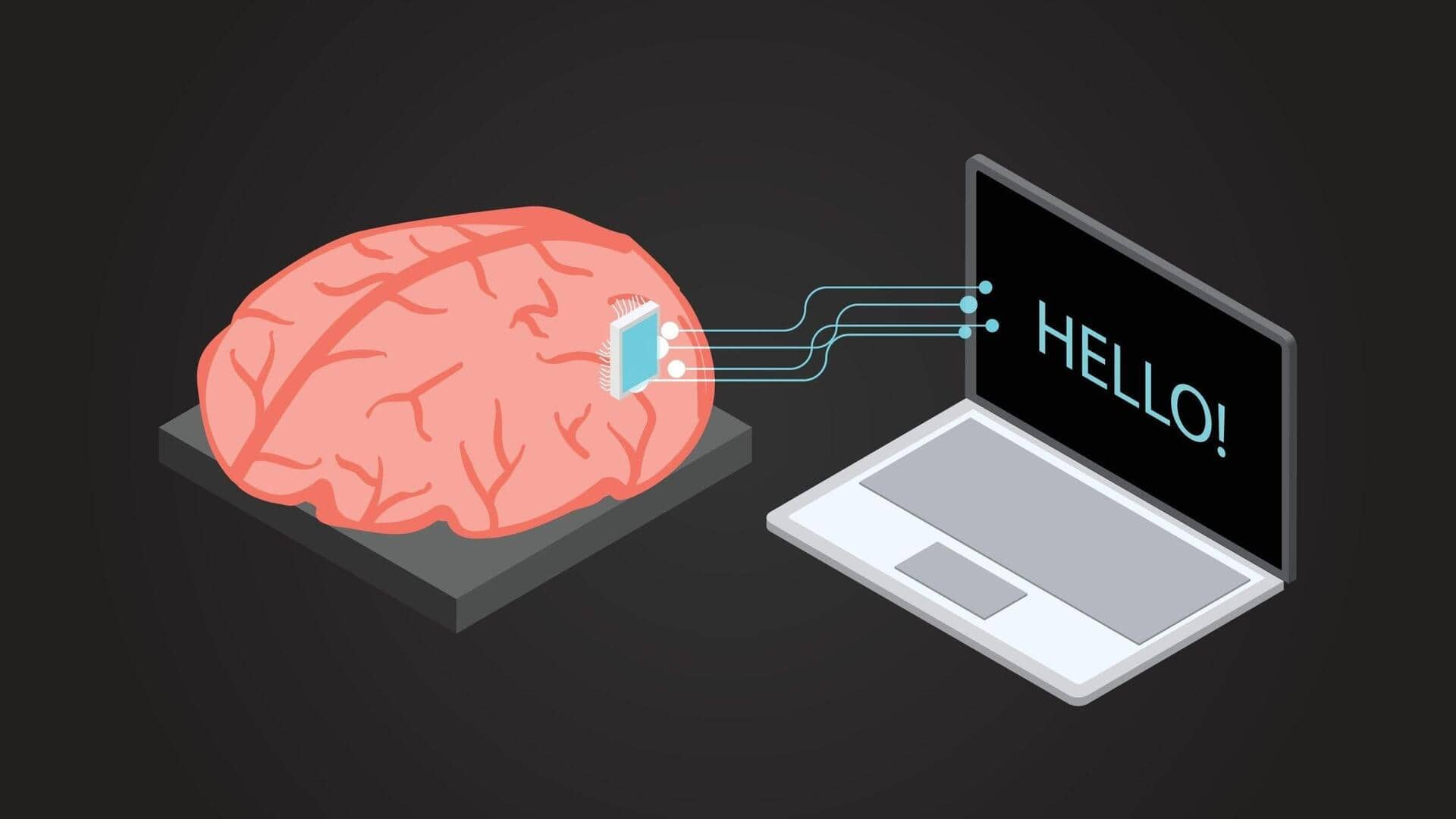
This Neuralink-rival has integrated ChatGPT into its brain implant
What's the story
Synchron, a brain-computer-interface (BCI) company rivaling Neuralink, has incorporated OpenAI's ChatGPT into its software, marking a global first for BCI firms.
The integration aims to streamline the control of digital devices for individuals living with paralysis.
The fusion of artificial intelligence (AI) and brain implants is seen as a way to expedite communication for individuals like Mark, an ALS patient participating in Synchron's clinical trials.
AI assistance
AI integration enhances communication for paralyzed individuals
With his hand mobility "almost gone at this point," Mark revealed how ChatGPT assists in typing and communication via Synchron's BCI.
The AI integration considers relevant context such as previous conversation to anticipate responses, offering users a selection of possible answers with a single "click" triggered through brain signals.
There's also a refresh button in case none of the AI-suggested responses are relevant.
"Every once in a while it'll drop an f-bomb, which I tend to do occasionally," said Mark.
Future prospects
Synchron's CEO shares vision for AI and BCI integration
Synchron's CEO, Tom Oxley, disclosed that the company has been testing various AI models for about a year. The release of OpenAI's ChatGPT-4o in May introduced new possibilities.
Oxley was particularly captivated by an OpenAI demo featuring a vision-impaired man navigating the city with AI assistance.
He envisions BCIs similarly leveraging large language models like ChatGPT to process relevant context in text, audio, and visuals to provide suitable responses that users can select with their BCI.
BCI technology
Synchron's Stentrode: A revolutionary brain-computer interface
Synchron's implant, known as a Stentrode, is inserted into a blood vessel near the brain's motor cortex, which controls movements.
Users think about moving, and the BCI interprets these thoughts and wirelessly transmits them to execute the desired action on the user's device.
The cost of Synchron's BCI is expected to be between $50,000 and $100,000, comparable to other implanted medical devices like cardiac pacemakers or cochlear implants.
Regulatory hurdles
Synchron aims for FDA approval and patient empowerment
No implantable BCIs have yet received market approval from the US Food and Drug Administration, but Synchron aims to change this.
Mark expressed hope for others in similar situations and encouraged participation in finding solutions.
"There's hope coming," Mark said, for anybody who may be in a similar situation. "Whatever I can do to help others, I think that's why we're here," he added.